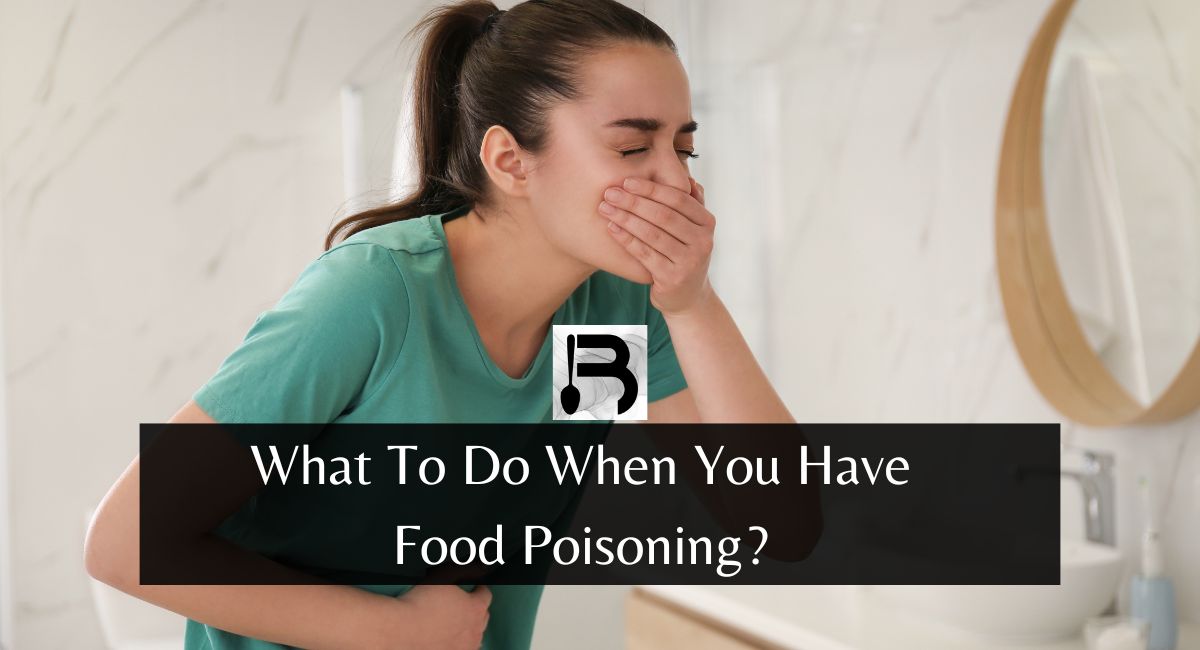Every year, millions of people worldwide experience the discomfort and distress of food poisoning. Characterized by symptoms like nausea, vomiting, diarrhea, and stomach cramps, food poisoning can range from mild to severe and, in some cases, can even be life-threatening.
Whether you’ve consumed contaminated food at a restaurant, from a street vendor, or even from your own kitchen, understanding the immediate steps to take can make a significant difference in your recovery process.
This article delves into the essential actions you should consider when you suspect you have food poisoning.
What To Do When You Have Food Poisoning?
Food poisoning is an unfortunate and often uncomfortable experience that many people encounter at some point in their lives. It occurs when one consumes contaminated food or drink, leading to symptoms ranging from mild discomfort to severe dehydration and, in some cases, even death.
If you suspect you’ve fallen victim to food poisoning, it’s essential to know the steps to take to ensure a swift recovery and prevent complications.
1. Recognize the Symptoms
The first step in dealing with food poisoning is to recognize its symptoms. These can vary depending on the causative agent (bacteria, viruses, or parasites), but common signs include:
- Nausea
- Vomiting
- Diarrhea
- Stomach cramps
- Fever
- Muscle aches
Symptoms can come within hours of consuming the contaminated food or drink or might take days to manifest.
2. Stay Hydrated
Dehydration is a significant concern with food poisoning, especially if you’re experiencing vomiting or diarrhea. Your body loses fluids rapidly in such cases, and it’s crucial to replenish them.
Drink a lot of fluids like water, oral rehydration solutions, or sports drinks. These not only replace lost water but also essential electrolytes. It’s advisable to avoid caffeine, alcohol, and very sugary drinks, as they can exacerbate dehydration.
3. Rest and Recuperate
Your body is fighting off an infection, and it requires energy to do so. Ensure you get plenty of rest, avoid strenuous activities, and give your body the time it needs to heal.
4. Avoid Certain Foods
Once you can keep food down, start with bland, easy-to-digest foods like toast, rice, bananas, or applesauce. Avoid dairy, caffeine, alcohol, nicotine, and fatty or highly seasoned foods until you’re feeling better.
5. Gradually Reintroduce Food
Once your symptoms start to subside and you feel you can keep food down, begin with bland, easy-to-digest foods.
Toast, rice, bananas, and applesauce are good starting points. It’s essential to avoid dairy, caffeine, alcohol, nicotine, and fatty or highly seasoned foods until you’re back to your usual self.
6. Over-the-Counter Medications
While certain over-the-counter medications might help alleviate some symptoms, using them judiciously is crucial.
For instance, anti-diarrheal medications might not be recommended in some cases, as they can slow down the elimination of toxins from the body. Always consult with a healthcare provider before taking any medication.
7. When to Seek Medical Attention
While many cases of food poisoning resolve on their own, there are instances when medical intervention is necessary. If you experience severe symptoms, such as:
- High fever (over 101.5°F or 38.6°C)
- Blood in stools
- Prolonged vomiting prevents you from keeping liquids down
- Signs of dehydration like too much thirst, dry mouth, dark yellow urine, or little to no urine output
- Symptoms lasting more than three days
It’s imperative to seek medical attention. Moreover, certain types of food poisoning, like botulism, are particularly dangerous and require immediate medical care. Symptoms of botulism can include difficulty swallowing or speaking, facial weakness, and blurred vision.
8. Prevention is Better Than Cure
Once you’ve navigated the tumultuous waters of food poisoning and are on the mend, it’s time to think about prevention. Ensure you practice good hand hygiene, especially before handling food.
Cook foods to their recommended temperatures, refrigerate perishables promptly, and be cautious of foods from questionable sources.
9. Reporting for the Greater Good
If you believe your food poisoning resulted from a restaurant or another commercial food source, consider reporting it to your local health department.
This step is not about retribution but about public safety. Reporting can help health officials identify potential outbreaks and implement measures to prevent others from falling ill.
What Helps Food Poisoning Quickly?
Food poisoning requires prompt attention. To alleviate symptoms quickly:
- Stay Hydrated: Drink clear fluids like water, oral rehydration solutions, or broth.
- Rest: Your body needs energy to heal.
- Avoid Certain Foods: Steer clear of dairy, caffeine, alcohol, nicotine, & all fatty or highly seasoned foods.
- BRAT Diet: Bananas, rice, applesauce, & the toast can be gentle on the stomach.
- Medication: Over-the-counter treatments like Imodium can help, but consult a doctor first.
- Seek Medical Attention: If symptoms are threatning or persist, see a doctor.
How Long Does Food Poisoning Last?
Food poisoning duration varies by cause. Symptoms typically start within hours to days after eating contaminated food. Most cases resolve in 24-48 hours, but some last longer. Common symptoms include nausea, vomiting, diarrhea, and abdominal pain.
Certain bacteria, like Campylobacter or E. coli, can cause week-long symptoms. See medical care if symptoms are severe or persistent or if dehydration occurs. Stay hydrated to aid recovery.
Bottom Line
Food poisoning is a challenging experience, but with the right knowledge and approach, recovery can be swift. Always prioritize hydration and rest, and don’t hesitate to seek medical attention if your symptoms are threatning or prolonged.
Remember, while food poisoning is common, it’s also largely preventable. Adopting safe food practices can go a long way in ensuring you & your loved ones remain safe and healthy.
Read More: What Foods Are High In Calcium And Vitamin D?

